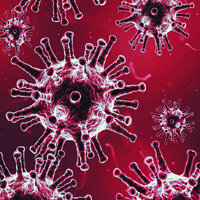The psychological impact of COVID-19 on people suffering from dysfunctional eating behaviours: a linguistic analysis of the contents shared in an online community during the lockdown

Submitted: June 23, 2021
Accepted: September 8, 2021
Published: December 20, 2021
Accepted: September 8, 2021
Abstract Views: 1911
PDF: 655
Appendix: 101
HTML: 31
Appendix: 101
HTML: 31
Publisher's note
All claims expressed in this article are solely those of the authors and do not necessarily represent those of their affiliated organizations, or those of the publisher, the editors and the reviewers. Any product that may be evaluated in this article or claim that may be made by its manufacturer is not guaranteed or endorsed by the publisher.
All claims expressed in this article are solely those of the authors and do not necessarily represent those of their affiliated organizations, or those of the publisher, the editors and the reviewers. Any product that may be evaluated in this article or claim that may be made by its manufacturer is not guaranteed or endorsed by the publisher.
Similar Articles
- Shirzad Babaei, Mahmood Dehghani, Fahimeh Fathali Lavasani, Ahmad Ashouri, Leila Mohamadi, The effectiveness of short-term dynamic/interpersonal group therapy on perfectionism; assessment of anxiety, depression and interpersonal problems , Research in Psychotherapy: Psychopathology, Process and Outcome: Vol. 25 No. 3 (2022): SPECIAL ISSUE: "Group psychotherapy: between settled benchmarks and new horizons"
- Cheri L. Marmarosh, Steven Sandage, Nathaniel Wade, Laura E. Captari, Sarah Crabtree, New horizons in group psychotherapy research and practice from third wave positive psychology: a practice-friendly review , Research in Psychotherapy: Psychopathology, Process and Outcome: Vol. 25 No. 3 (2022): SPECIAL ISSUE: "Group psychotherapy: between settled benchmarks and new horizons"
- Adam Klocek, Tomáš Řiháček, The associations between interoceptive awareness, emotion regulation, acceptance, and well-being in patients receiving multicomponent treatment: a dynamic panel network model , Research in Psychotherapy: Psychopathology, Process and Outcome: Vol. 26 No. 2 (2023)
- Gianluca Cruciani, Marianna Liotti, Vittorio Lingiardi, Motivations to become psychotherapists: beyond the concept of the wounded healer , Research in Psychotherapy: Psychopathology, Process and Outcome: Vol. 27 No. 2 (2024)
- CV Vijayapriya, Rameshbabu Tamarana, Effectiveness of internet-delivered dialectical behavior therapy skills training on executive functions among college students with borderline personality traits: a non-randomized controlled trial , Research in Psychotherapy: Psychopathology, Process and Outcome: Vol. 26 No. 3 (2023)
- Sara Silva, Isabel Basto, João Salgado, Carla Cunha, Validation of the client satisfaction questionnaire: a pilot psychometric analysis in Portuguese routine practice , Research in Psychotherapy: Psychopathology, Process and Outcome: Vol. 26 No. 2 (2023)
- Vera Békés, Claire J. Starrs, J. Christopher Perry, Tracy A. Prout, Ciro Conversano, Mariagrazia Di Giuseppe, Defense mechanisms are associated with mental health symptoms across six countries , Research in Psychotherapy: Psychopathology, Process and Outcome: Vol. 26 No. 3 (2023)
- Elena Ierardi, Marta Bottini, Emanuele Preti, Rossella Di Pierro, Fabio Madeddu, Cristina Riva Crugnola, Attachment styles, mental health, and trauma during the first wave of COVID-19 pandemic in an Italian adult population , Research in Psychotherapy: Psychopathology, Process and Outcome: Vol. 26 No. 3 (2023)
- Research Group for treatment for Anxiety and Depression, Psychotherapies for Anxiety and Depression: benefits and costs , Research in Psychotherapy: Psychopathology, Process and Outcome: Vol. 20 No. 2 (2017)
- Hubert de Condé, Emmanuelle Zech, Jochem Willemsen, The person behind the therapist: a recall study on significant events that contribute to therapists’ personal and professional development , Research in Psychotherapy: Psychopathology, Process and Outcome: Vol. 27 No. 2 (2024)
<< < 1 2 3 4 5 6 7 8 9 10 > >>
You may also start an advanced similarity search for this article.

 https://doi.org/10.4081/ripppo.2021.557
https://doi.org/10.4081/ripppo.2021.557





